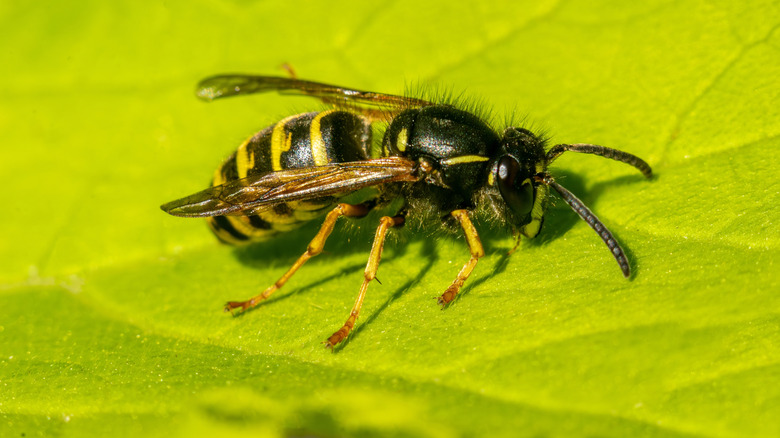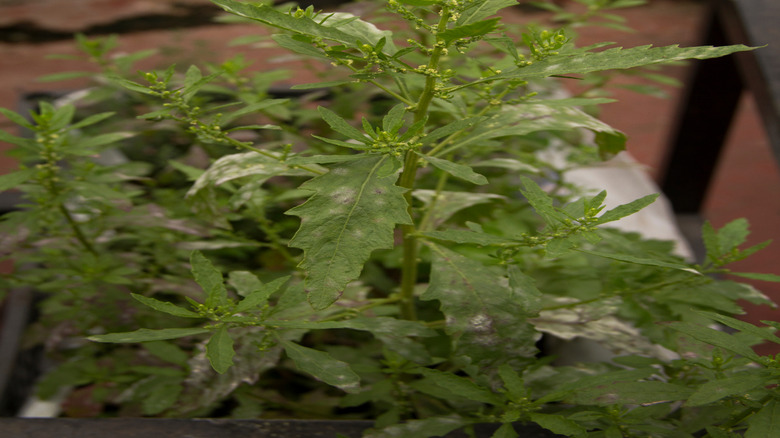Avoid Planting This Herb In Your Garden (Unless You Really Like Wasps)
There are many components when planning a garden, like the decision to lure pollinators in with certain plants. While you may be focused on the well-known pollinating species, such as butterflies and bees, your flowering plants may also attract wasps. If you would rather keep wasps away from your home, reconsider planting epazote (Dysphania ambrosioides). Also nicknamed Mexican tea or wormseed, epazote is a weedy plant that belongs to the buckwheat family. It is native to Central and South America but is now widespread across North America and Europe. Depending on where it is grown, epazote may be either an annual or perennial plant. As an annual, epazote may be grown in USDA hardiness zones 2 to 7, while it has perennial qualities in zones 8 to 10. In the summer and fall, epazote produces small tubular flowers that are green or yellow in color.
While the flowers can provide a bit of color in your outdoor space, they also have a strong scent that can easily lure wasps. These flying insects are considered undesirable because of aggressive behaviors they display when threatened. However, wasps are important to the ecosystem. In fact, some could argue that it is important not to mistake these lesser-known garden pollinators for pests. Nevertheless, you do not have to actively attract wasps to your home and garden if you do not want them around for safety reasons.
When you should skip planting epazote in your garden
From a home garden standpoint, epazote has many benefits. For one, it is easy to grow, if it is provided with full sun and well-draining moist soil. It is also recommended to help lure wasps away from other flowering plants, including those with active infestation. However, if you are looking to minimize wasps altogether, epazote may not be the best option because of its reputation as a wasp-attractor. You might also consider other herbs known to deter wasps due to their scents, such as those in the mint family. These may be used with other plants in your yard to keep wasps away for good.
Aside from the ability to attract wasps, there are other downsides to consider with this plant. Epazote has invasive qualities and can rapidly multiply thanks to its re-seeding capabilities. It can grow between 2 and 5 feet tall and may spread throughout your garden if grown out of containers. The leaves of the plant can also emit a strong musky scent that some gardeners find unappealing. There are problems with toxicity of epazote to consider, too. While the leaves are sometimes used in traditional medicine as well as Mexican food dishes, the seeds are considered highly toxic to both humans and animals. If you do have epazote plants in your garden, keep them out of reach of children, dogs, cats, and horses.

